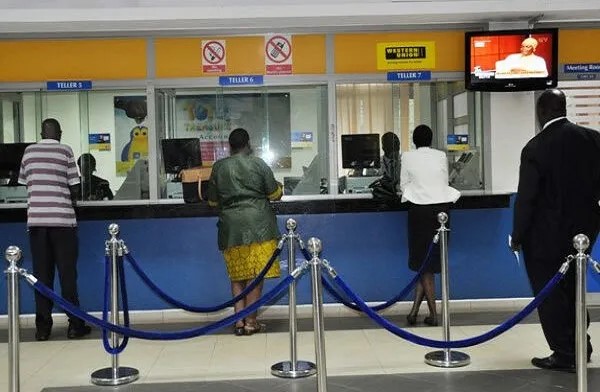Manufacturers want budget that will speed up recovery

Minister of finance and planning Mwigulu Nchemba
What you need to know:
- Confederation of Tanzania Industries (CTI) trade policy specialist Frank Dafa said it was their expectation that measures to be presented in the budget would be the ones that do not impede the sector’s recovery.
Dar es Salaam. All eyes will be on Finance and Planning Minister Mwigulu Nchemba as he will be unveiling the main budget for the year 2022/23 next Tuesday in Parliament, with manufacturers expecting to see a budget that will support the strong momentum of the post-Covid-19 recovery.
The first confirmed case of the pandemic on the globe was confirmed towards the end of December 2019 in Asia, before spreading to Tanzania three months later.
As it happens, the global manufacturing industry received a devastating blow by reduced demand, affected supplies and unavailable workforce.
In that regard, the next week’s budget is an important opportunity for the government to focus on pushing itself to fill the void for a better and sustainable future.
Confederation of Tanzania Industries (CTI) trade policy specialist Frank Dafa said it was their expectation that measures to be presented in the budget would be the ones that do not impede the sector’s recovery.
Mr Dafa told The Citizen yesterday that a competitive manufacturing ecosystem would need broad predictability in the business environment with a view to attracting more investors.
“We need consistent measures. Tax policies should be clear to all investors,” he stressed.
To catalyse growth in the manufacturing sector, the sector would also need a cut in tax rates, a move that could be reflected in the operational costs.
The confederation was of the suggestion that Electronic Tax Stamp (ETS) prices be cut by 75 percent, import duty on wheat be reduced from the current 10 percent to zero rate and import duty on edible oil be slashed from 25 percent to 10 percent.
Moreover, manufacturers under the umbrella of CTI were of recommendation that Value Added Tax (Vat) on inputs like spare parts be zero rated, as well as expediting the payment of Vat refund and 15 percent additional import duty on industrial sugar.
Considering the skyrocketing prices of wheat as the aftermath of the Russia-Ukraine war, CTI’s Dafa said reducing import duty will help to reduce shocks exacerbated by the turmoil.
Ukraine and Russia together account for more than a quarter of the global trade of wheat, which is a crucial food staple.
The hike in prices is threatening supplies and so is prices of wheat products which include wheat flour, breads, chapattis, breads, scones, cakes, pasta and biscuits.
Manufacturers also believe that a cut in import duty of edible oil will boost production in cooking oil and thus addressing a dire shortage and untouchable price of the product.
Currently, according to the official data, Tanzania’s annual demand for cooking oil is estimated at 600,000 tonnes against local production of 250,000 tonnes.
This leaves a deficit of almost 350,000 tonnes which is covered by imports.
“We expect the budget will provide a blueprint for steering the economy towards a sustained high-growth trajectory. Blueprint reforms should prioritise cuts in taxes and charges,” hinted Mr Dafa.
Tanzania Breweries Limited (TBL) corporate affairs and sustainability director Mesiya Mwangoka said she expects the budget that will back up post Covid-19 recovery that started last year.
The government, she suggested, could do that by maintaining the current excise rate for the fiscal year starting from July 2022 to June 2023 to allow recovery from the volume decline resulting from the pandemic.
Currently, according to her, the rate stood at Sh720 per litre of a clear beer and Sh450 per litre of opaque beer.
The bear maker cautioned that any increase in excise duty, in addition to high cost of ETS, will not only culminate to a decrease in production due to increased operational costs, but also make the product less affordable.
This in turn, will reduce the demand for the product and thus lowering sales and government revenue.
The study by TBL, a company which had in last calendar year paid Sh264 billion in excise duty, shows that five percent increase in excise duty, for-instance, will lead to a loss in the government revenue by Sh14 billion between July and December.
“With the increase in excise duty, prices of our products will go up and thus forcing our customers to shift to the illicit market,” cautioned Ms Mwangoka.
“We are still in recovery mode. We need a backup. At least by next year, we would be in a position to absorb any increase.”
She also expects the budget that seeks to create an enabling tax environment.
For the purpose of predictability and boosting investment, investors, she explained, would wish the government to come up with the excise duty calendar, covering say, three years.
“What investors always want is predictability in the business environment,” insisted Ms Mwangoka.
Coca-Cola Kwanza director of public Affairs, communications and sustainability Salum Nassor told The Citizen that he was expecting to see the business environment improve even further.
He commended the government for maintaining excise duty on soft drinks and removing 15 percent additional import duty on industrial sugar during the current financial year (2021/22), saying the likes of initiatives would increase their sales and improve cash flow.
“I am optimistic the government will keep the momentum going. We need measures that will take the manufacturing industry to the next level,” said Mr Nassor.
He called for a cut in ETS costs.
The Citizen understands that manufacturers had earlier this year proposed a cut of 75 percent of ETS costs from past rates.
However, it was unfortunate that the government decided to bring it down to rates that translate into an average reduction of only four percent across all products, with manufacturers saying the new rates were just a drop in the bucket.
Bakhresa Group corporate affairs director Hussein Sufian told this paper that he was expecting the budget to come up with policies that will consider the effect of Covid-19 and Russia-Ukraine war on the manufacturing sector.
“Considering that we are still in recovery mode and considering that we are in the middle of the crisis (Russia-Ukraine), we don’t expect the budget to come up with changes that will disturb the recovery of the sector,” said Mr Sufian.
Global supply chains were starting to recover from two years of upheaval caused by the pandemic when the Ukraine crisis hit on February 24, this year.
“Any change (not in favor of manufacturers), could make manufacturers fail to absorb external shock,” cautioned Mr Sufian.
Going by the Private Sector Foundation (TPSF) Tax Reforms Proposals that had been submitted to the Ministry of Finance and Planning, members of the private sector propose the stamp duty reduction to at least Sh1 per stamp.
Currently, the soft drinks producers pay Sh8.5 per stamp for each bottled water equivalent to Sh102 per carton of 12 bottles regardless the size of the bottle.
“This increases the operational costs to the business and threatens the survival of producers in the industry,” reads a part of the document.
The private sector apex body also proposes the reduction of the rate of excise duty from Sh58 to Sh3per litre, which the small-scale industry will be able to pay and at the same time the company can survive and compete.
TPSF also proposes reduction of the rate of ETS on cigarettes to a maximum of $5 or less per 1000 stamps, well below compared to the current $20.
It used to be $4.77 per 1000 stamps of cigarettes before 2019 when the ETS was being introduced to replace the paper stamp.
“The cost is reflected in the cost of production,” said TPSF in the document availed to The Citizen.
The manufacturing sector, which contributes around eight per cent of the Tanzania’s Gross Domestic Product (GDP) in 2021, shoulders the significant responsibility of creating jobs, securing investment, and propelling industrial and country growth.
Under the period of review, according to the official data, the sector created 345,615 jobs.
This suggests that creating an enabling business environment will attract more investments into the sector and thus help the country's vision of creating 2.5 million jobs by 2025 come true.





